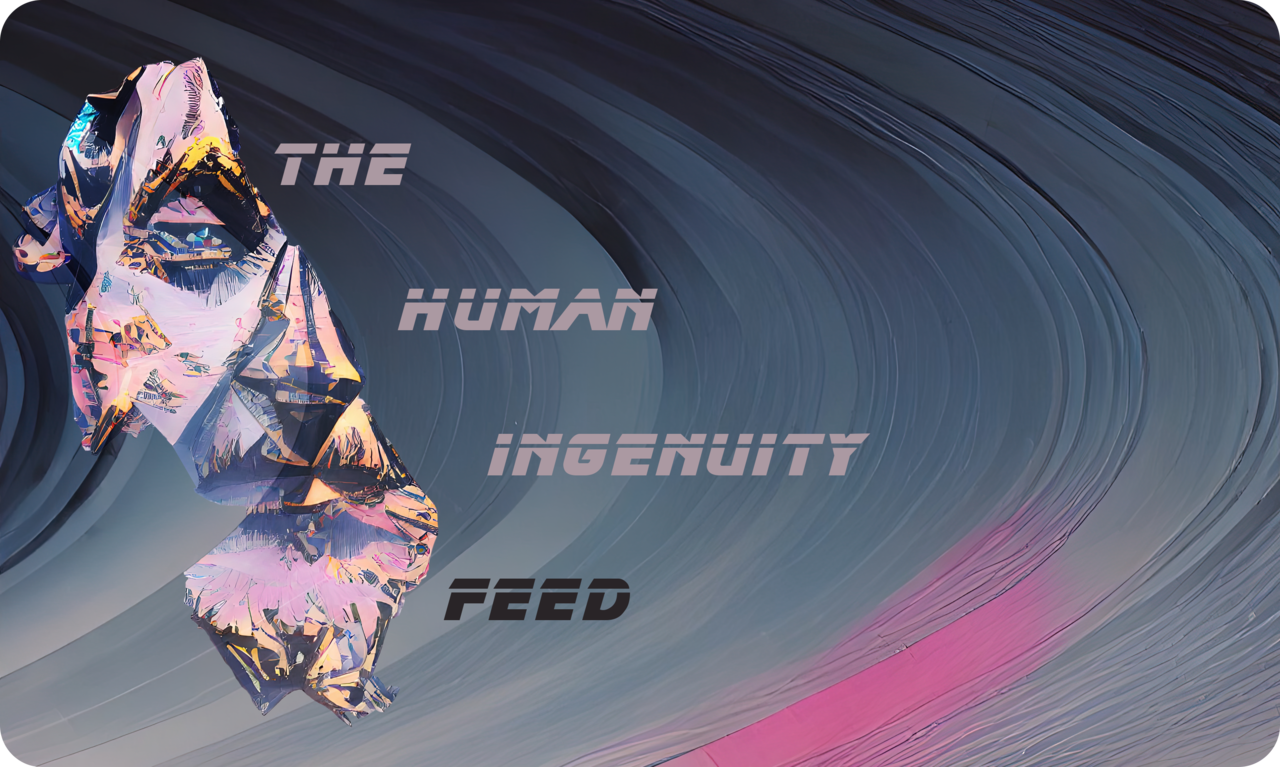
The Human Ingenuity Feed
A hub for essays, thoughts, and updates on technologies, sciences and culture impacting humanity in a variety of topics. An exploration in independent creativity. An attempt to grasp at our Universe's edges.
By registering you agree to Substack's Terms of Service, our Privacy Policy, and our Information Collection Notice